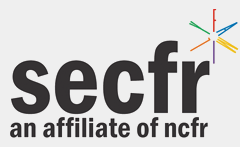Title
The Effects of Students' Majors on their attitude toward Same-Sex Parenting
Proposal Focus
Research
Presentation Type
Presentation
Abstract
With the recent legalizing of same-sex marriage in the United States by the Supreme Court, this opens the door to more rights for same-sex couples, such as parenting. However, people still have opposing views of same-sex relationships. What makes people different in their attitudes toward same-sex relationships, such as same-sex parents? This study has examined the attitudes of the students at the University of Louisiana at Lafayette and potential factors that might affect their attitudes toward same-sex parenting. For example, it is found that religious people are less likely to accept same-sex relationships, women are more accepting than men to same-sex relationships, and younger generations are also more accepting than previous generations. How about the majors then? How about the class materials and topics that students are taught within class? Would curriculum, majors, classes, topics in class, and other factors that students are exposed to during college life make a difference in students? The current study has explored the possible dynamics among various factors (e.g., major, class, classification) and students’ attitudes toward same-sex relationships. The undergraduate students at the University of Louisiana at Lafayette were asked to fill out the survey regarding the variables addressed above. So far, we have collected 167 samples from diverse majors, such as Engineering, Child and Family Studies, and Business students. The results show that women in general are more accepting than men and, even among men, men with more social science related majors, are more accepting than men in the other majors. In addition, it was found that the variable – having personal relationships with LGBT community or not, was significantly related to the acceptance of men. For this conference, more data will be collected and analyzed with more structured analysis in order to find more objective dynamics among variables addressed above.
Note: Last year, I presented the current study at poster symposium but, this year I will present more updated findings with more data and more advanced statistical analysis.
Keywords
parenting, same-sex, students, majors
Location
Tiger II
Start Date
9-3-2018 10:15 AM
End Date
9-3-2018 11:15 AM
The Effects of Students' Majors on their attitude toward Same-Sex Parenting
Tiger II
With the recent legalizing of same-sex marriage in the United States by the Supreme Court, this opens the door to more rights for same-sex couples, such as parenting. However, people still have opposing views of same-sex relationships. What makes people different in their attitudes toward same-sex relationships, such as same-sex parents? This study has examined the attitudes of the students at the University of Louisiana at Lafayette and potential factors that might affect their attitudes toward same-sex parenting. For example, it is found that religious people are less likely to accept same-sex relationships, women are more accepting than men to same-sex relationships, and younger generations are also more accepting than previous generations. How about the majors then? How about the class materials and topics that students are taught within class? Would curriculum, majors, classes, topics in class, and other factors that students are exposed to during college life make a difference in students? The current study has explored the possible dynamics among various factors (e.g., major, class, classification) and students’ attitudes toward same-sex relationships. The undergraduate students at the University of Louisiana at Lafayette were asked to fill out the survey regarding the variables addressed above. So far, we have collected 167 samples from diverse majors, such as Engineering, Child and Family Studies, and Business students. The results show that women in general are more accepting than men and, even among men, men with more social science related majors, are more accepting than men in the other majors. In addition, it was found that the variable – having personal relationships with LGBT community or not, was significantly related to the acceptance of men. For this conference, more data will be collected and analyzed with more structured analysis in order to find more objective dynamics among variables addressed above.
Note: Last year, I presented the current study at poster symposium but, this year I will present more updated findings with more data and more advanced statistical analysis.

